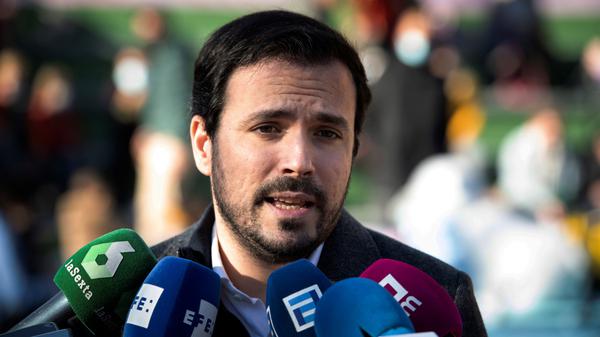Garzón says that the criticism of his meat campaign was from men who saw "their masculinity affected"
The Minister of Consumption, Alberto Garzón, has assured this Sunday that the majority of public criticism of his Department's campaign to reduce meat intake came from men who "felt that their masculinity would be affected" by not consuming it.
This was stated in an interview in the British newspaper The Guardian, shared by the minister himself through his Twitter account: "Today The Guardian reviews the line of the Ministry of Consumer Affairs regarding the fight against climate change and the necessary reduction of meat consumption from intensive farming to reduce GHG emissions".
The controversy over the 'steak' arose in July, after the minister launched the campaign 'Less meat. More life'. As explained by the Ministry, 14.5% of greenhouse gas emissions come from livestock, especially from macro-farms, while 15,000 liters of water are required to produce one kilo of beef.
Thus, according to Consumption, if Spaniards reduced meat consumption to the levels recommended by science, "50% of greenhouse gas emissions associated with food and 20% of premature deaths would be avoided."
Garzón's campaign was defended by United We Can and harshly criticized by the meat sector and by the Minister of Agriculture, Luis Planas. Also by the President of the Government, Pedro Sánchez, who assured that for him "a steak to the point" was "unbeatable".

In the interview for the British newspaper, Garzón insists on the negative impact on the environment of the consumption of beef raised in large industrial farms. "Other countries are quite advanced in this, but in Spain it has been a taboo," he says.
The minister defends that he is not asking Spaniards to stop eating meat, but to reduce the amount they consume and ensure that it is of good quality. All this, for the good of your health and the environment.
"Extensive farming is an environmentally sustainable form of livestock farming that has a lot of weight in areas of Spain such as Asturias, parts of Castilla y León, Andalusia and Extremadura (...) What is not at all are the macro-farms (... .) They find a town in an unpopulated part of Spain and they put 4,000, or 5,000, or 10,000 head of cattle in. They pollute the soil, they pollute the water, and then they export this poor quality meat from abused animals," he explains.
"Affected Masculinity"
At one point in the conversation, the Minister for Consumer Affairs attributes the criticism leveled at his campaign by members of the government to "the different programs and policies" of the coalition parties. Later, he claims that he realized that most of the public criticism came from men who apparently "felt that their masculinity would be affected by not being able to eat a piece of meat or have a barbecue." Women, according to Garzón, were more receptive to the campaign's message.
"We believe that a part of society was already prepared for it and had psyched up (...) But we still had to push," adds the minister, who believes that the debate on meat consumption should have taken place a long time ago.
Last September, in statements collected by Europa Press, the head of Consumption assured that his statements on the impact of eating red meat "had full scientific support." The minister pointed out that his department had always defended the extensive and family livestock sector for having "neutral ecological impact."









3985